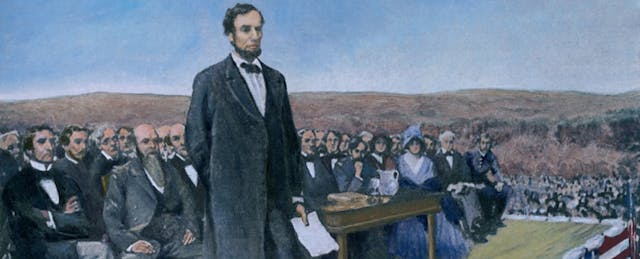Over the past two years, tension between students and government have given rise to the protests of Taiwan’s Sunflower Movement and Anti Black Box Movement. At the same time, another, more gentle development has swept across Taiwan, like a fresh breeze after a devastating hurricane.
It began in 2010, when engineering professor and future edtech innovator Ping-Cheng Yeh received the prestigious Teaching Excellence Award from National Taiwan University; the award is presented to the top 1% of faculty at the university, and is the highest honor a college professor in Taiwan can receive. Soon after, a bout of self-doubt altered his entire approach to teaching.
Two days after the award ceremony—as his trademark humor had his class erupting in laughter—Yeh noticed something. He squinted toward the back of the auditorium. Was that … a student falling asleep? And there were (gasp!) two. And then … there were … four?! As he left work that day, he felt perplexed and rather indignant. He asked himself, “If my teaching strategy is supposed to be one of the best, then why are people still falling asleep in my class?”
The hours ticked by. Yeh ate dinner, and considered his teaching style. He graded papers, and pondered his colleagues’ teaching tactics. He brushed his teeth, and flashed back to his last class, where he had peppered his passionate lecture with contemporary jokes. He thought, “I design fun lectures for my students. I create interesting handouts. I write thought-provoking questions. I am great with my students.” As Yeh’s angry pride gave way, he had a realization: No matter how engaging his teaching is, it won’t reach a student who is not motivated.
That night, Yeh acknowledged that being "clear and fun" is a general rule of teaching. But teaching also needs to be motivational and engaging. He identified the local predominant teaching style as for the student, by the teacher. Many educators he knew worked hard creating PowerPoint slides, lectures, and handouts, but they were not achieving results on par with their efforts. Yeh concluded that students must play a more active role in their education in order to encourage engagement and heighten learning. He and other professors in his Taiwanese social circle began to adopt the motto: of the student, by the student, for the student—a spin-off of Lincoln’s Gettysburg Address.
Of the Student
To these thought-leaders, of the student means enhancing the learning experience and building the confidence of individual students by using real-life applications. For example, Yeh asked students in his Presentation and Public Speaking class to form pairs and develop 12-minute speeches about their respective fields of study. They gave their speeches to local elementary school students, who voted on how well each candidate presented. The young students’ votes were then translated into grades. Many in Yeh’s class protested, insisting that they wanted to learn how to make professional presentations, not speak to school children. He explains the rationale behind the exercise: When students eventually head out into the workforce, they find it is “most difficult to present to people with a lot of power and little knowledge.”
In another class, Yeh invited three educational non-profits to visit—Teach For Taiwan, Jun-Yi Academy, and Design For Change. They pitched their businesses to Yeh's students, who created PowerPoint presentations for the organizations. The students felt empowered by the process; not only did they choose which organization to work with, but they gained practical experience that boosted their confidence. (Check out some of their presentations here, here, and here.)
By the Student
To Yeh and his colleagues, by the student means empowering students to have more responsibility for their own teaching and learning. This encompasses both peer grading and curriculum design. Usually, says Yeh, “students are given rewards in the form of teacher approval and high marks on exams.” Neither of these factors are truly motivating for the student, he adds, because young people are most affected by peer approval.
Peer grading, on the other hand, is solely about student motivation, says Yeh. He explains that after a peer-grading exercise, classmates will usually congratulate or sympathize with each other’s scores. Additionally, when students evaluate each other’s work using the teacher’s own grading rubric, they better learn to differentiate good work from bad work.
Yeh also believes that great curriculum design can only be done by people who truly understand the subject. “A lot of teachers in Asia use homework as evaluation or to push students to study,” he says. Instead, he believes that homework should be used to help students learn. When students design their own homework, they’re actually doing more background research than they would if they had just been given an assignment. Students are able to “ask the right questions” by first understanding the material.
As a PhD student at the University of Michigan, Ann Arbor, Yeh put his theory into practice when he tried to solve the problem of widespread homework plagiarism in his class. He realized that students were copying answers from the teacher’s manual. So he split the students up into groups and had them generate unique questions about their homework reading, questions then shared with the other groups. He not only solved the problem of classroom cheating, but also discovered that by creating the homework themselves, students became more motivated to do their own homework, to research the subject matter, and to answer each other’s questions.
The of the student, by the student, for the student philosophy is slowly changing educational mindsets and empowering students in Taiwan, China, and across the rest of Asia. It also continues to propel Yeh to innovate ways to engage students in their own learning. His classroom experiences led him to develop the first ever MOOC course in Chinese, which he offered on Coursera in 2013. His book about his teaching philosophy became a Taiwanese bestseller. And together with his students, Yeh created PaGamO, which he describes as the "first multi-player social learning platform"; it now boasts more than 600,000 users and will soon host the first Calculus World Cup. For his efforts, Yeh earned a Wharton-QS 2014 Reimagine Education Award, the Oscar of higher education innovation.
This past fall, Yeh opened Wu Jie Xue Xiao, which in English translates to "school without boundaries". Its mission is to educate a new generation of middle and high school students to be learners, doers, and communicators by using innovative teaching tools such as the flipped classroom, peer-grading, student homework design—and Yeh's of the student, for the student, by the student philosophy.



